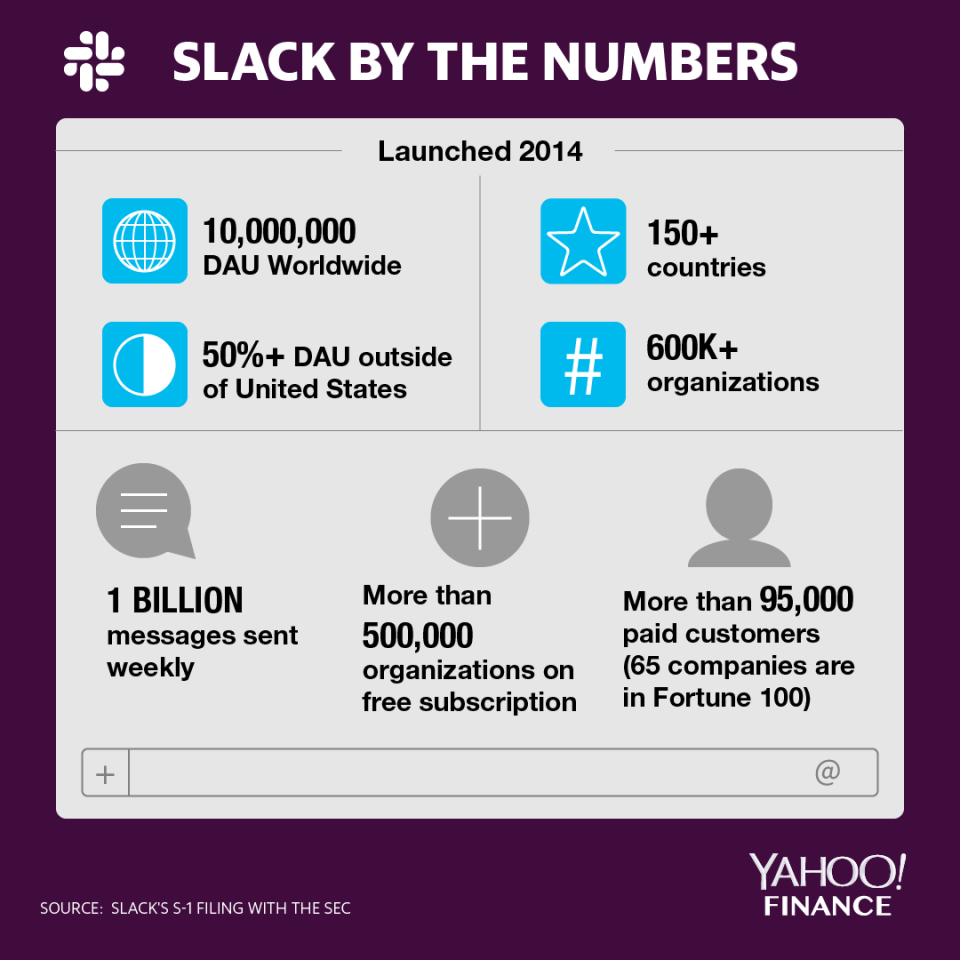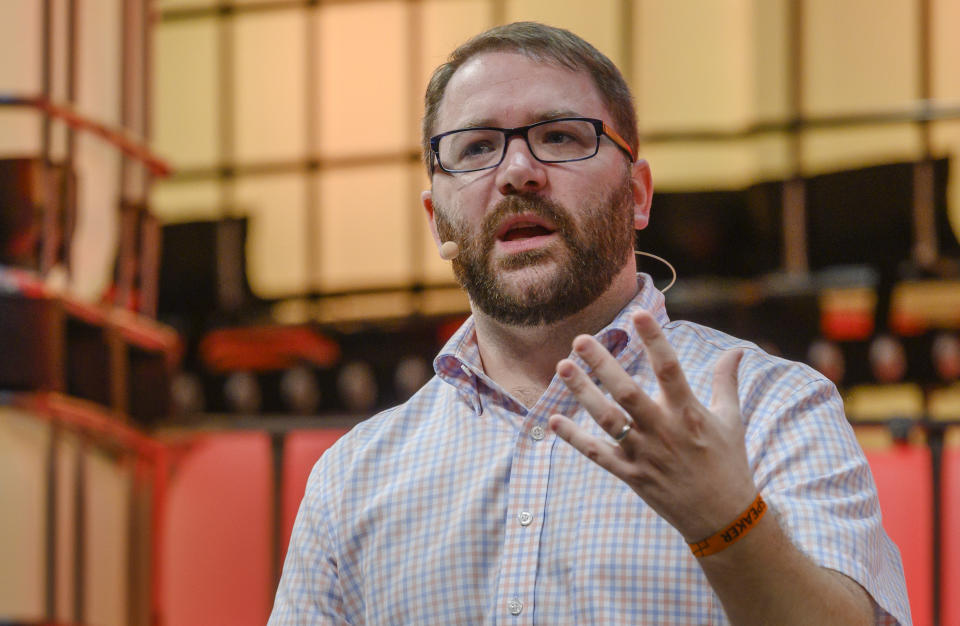Slack's direct listing shows how much we’re obsessed with work
Slack (WORK) stock skyrocketed after going public via direct listing on Thursday. The stock began trading at $38.50 on the New York Stock Exchange, nearly 50% higher than the $26 reference price set Wednesday afternoon.
Shares of the workplace messaging platform climbed as high as $42 during the trading session, putting Slack’s market cap at over $20 billion.
Ten million people (95,000 of them paying customers) spend more than 50 million hours on the platform in a typical work week, according to Slack co-founder and CEO Stewart Butterfield. “Annualized, that’s billions of hours each year and growing,” he said passionately during the first-quarter earnings call earlier this month.
That means each user, on average, is spending an hour each day on the app.

Slack’s financials show just how much time Americans spend, well, at work.
Entire corporate environments have shifted their attention from email to Slack — for group channels and direct messages alike. Workers can access Slack on their desktops or on their phones, suggesting their work can follow them anywhere. Employees can also post funny GIFs and discuss non-work matters on Slack. Now, a purported tool for efficiency is being blamed for promoting the opposite, with pieces like Slack is ruining work and How Slack killed my productivity becoming quite commonplace.
‘A supernova market fit’
But Slack is arguably filling a need for mobile workplace communication, particularly for remote workers. Describing the white space he stumbled upon in 2009, Butterfield eventually launched the first version of the product in 2014.
“When we introduced Slack five years ago, the supply hit the demand and that's where we are today. It was a supernova product market fit,” he said.

Ahead of its IPO, the team chat app disclosed a net loss of $31.8 million, or 26 cents per share, for the first quarter. For the second quarter of fiscal year 2020, Slack expects revenue of $139 million to $141 million, a notable slowdown from the 67% annualized growth it reported for the first quarter.
If the successful public offerings of cloud computing firm PagerDuty (PD) and video conferencing company Zoom (ZM) are any indication, the business-to-business space may not sound sexy. But it’s teeming with opportunity. It also illuminates how much time Americans are spending in the office — or trying to bring their work outside the office — and entrepreneurs are capitalizing on it.
‘A whole new way of working’
In fact, citing the wide range of industry professionals who use Slack for everything from coordinating job fairs to covering elections, Butterfield calls it “a whole new way of working.”

Slack’s only real competitor is Microsoft (MSFT) teams.
“Microsoft is a serious competitor to anybody they're competing with I think. But I think that that's been good for us. When you start a product startup, you have to have an irrational belief that it's definitely going to succeed, and it's a thing that everybody wants, and it's inevitable,” co-founder and CTO Cal Henderson told Yahoo Finance last year.
“It’s very validating to have such a serious competitor as Microsoft validate that too, that this really is a product category that everybody is going to be using over the next few years.”
With half of Slack’s users outside the U.S., the company has yet to fully penetrate any region, and the road ahead is fairly open.
“One thing we hear from customers all the time is this,” Butterfield said Monday. “Slack is the kind of thing you don't know you need but once you have it, you can't live without it.”
Melody Hahm is a senior writer at Yahoo Finance, covering entrepreneurship, technology and real estate. Follow her on Twitter @melodyhahm. She hosts Breakouts, a monthly interview series for Yahoo Finance featuring up-close and intimate conversations with today’s most innovative business leaders.
Read more:
Bombas CEO: We could easily be a billion-dollar brand in the next 5 years
Preet Bharara: College admissions scandal is 'not that different from insider trading'
Two couples turned an axe-throwing hobby into a million-dollar business
How a single dad turned weed tours into a $1.8 million business
3 Dreamers describe how DACA helped them find careers in America